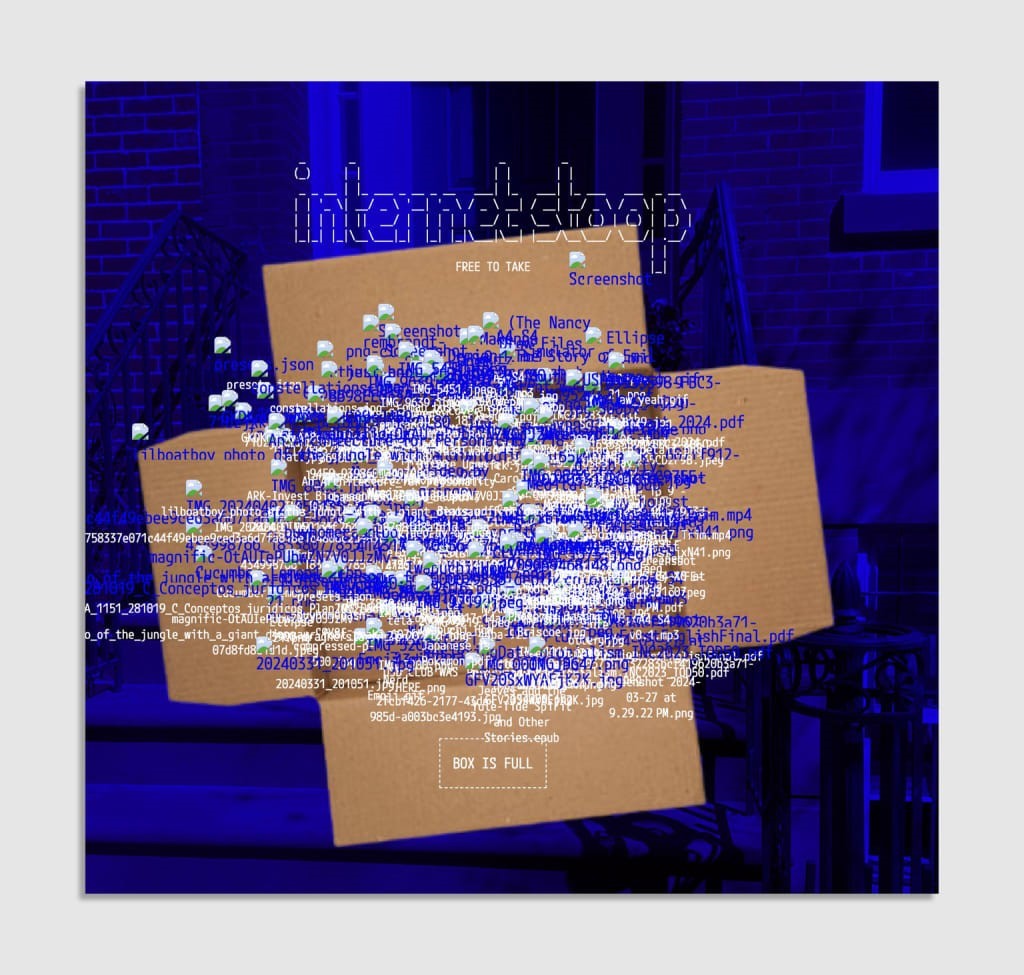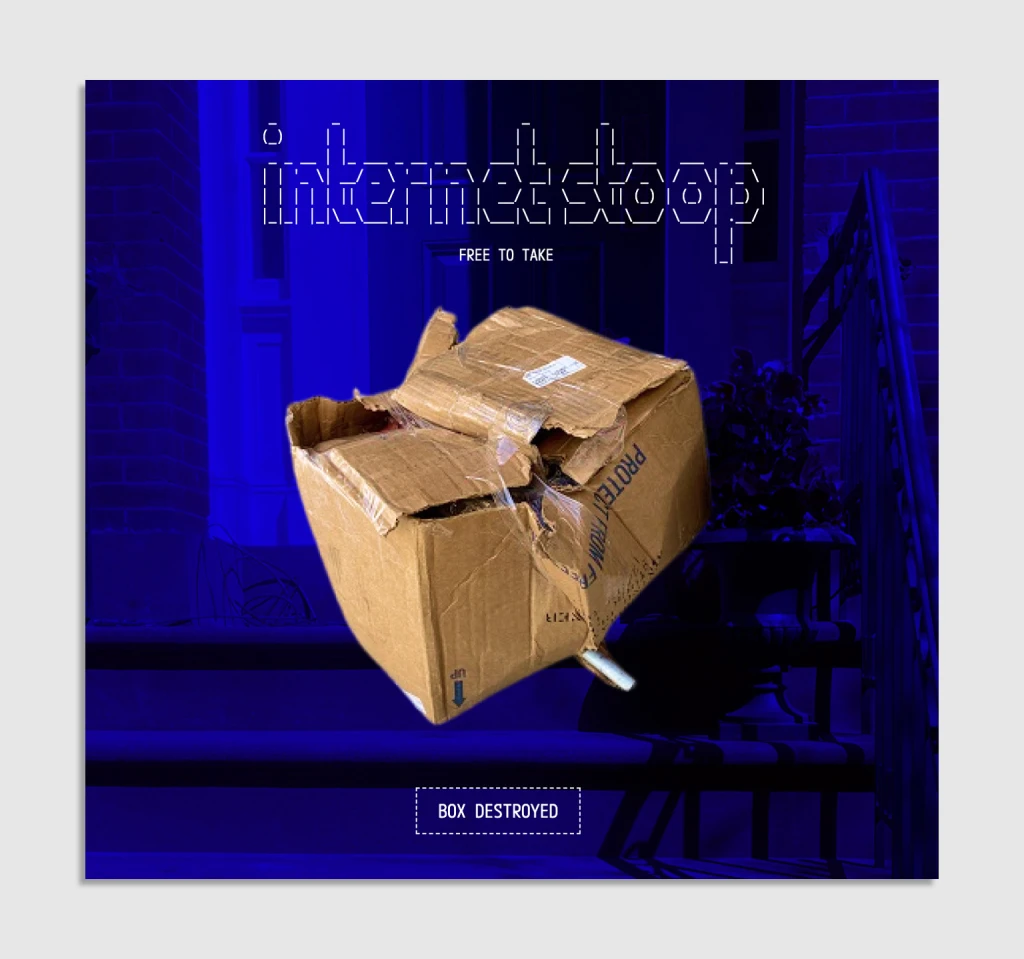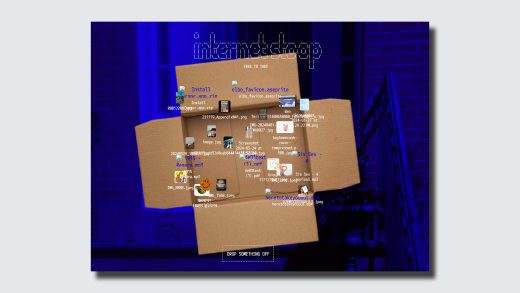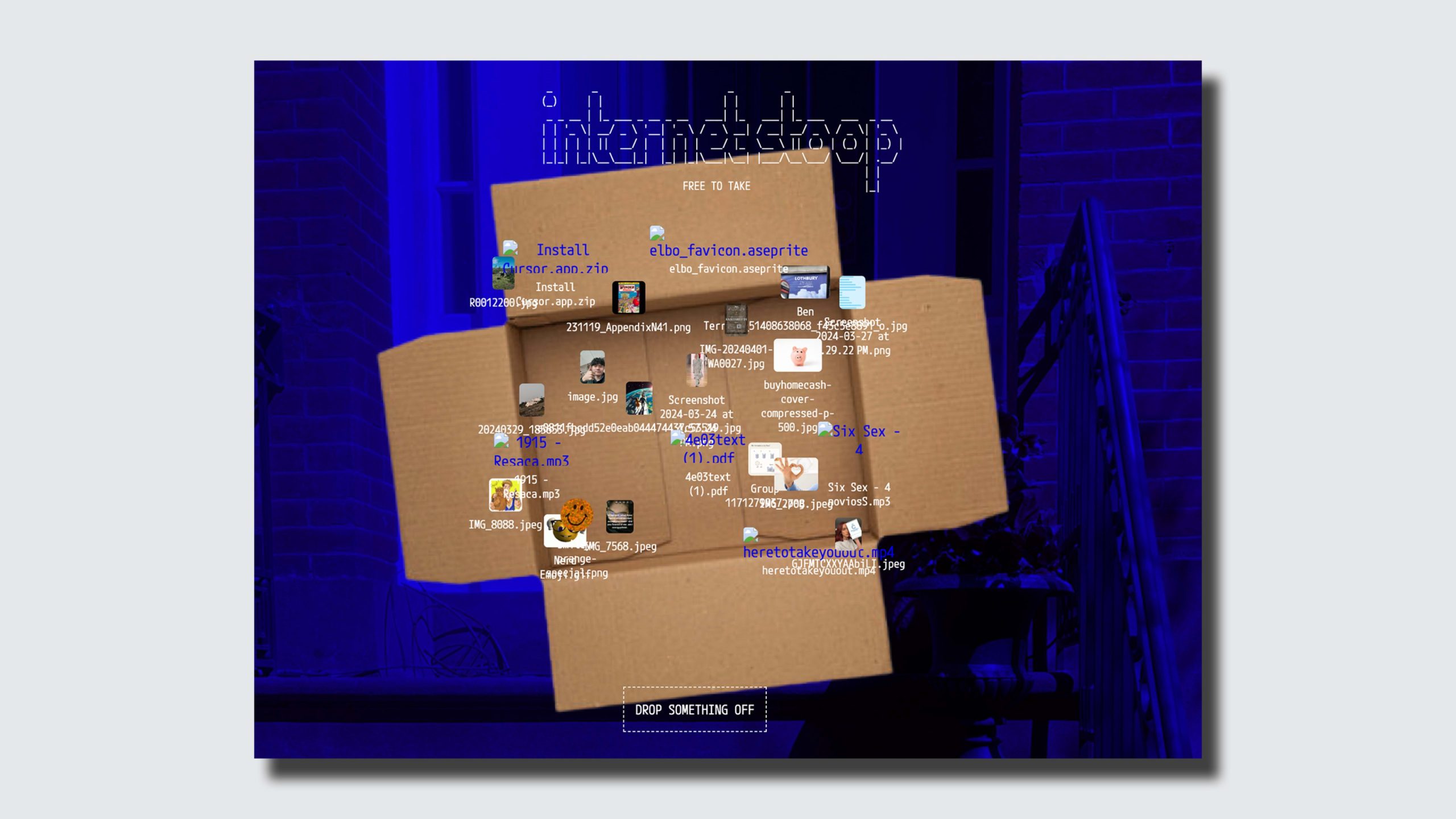For a moment in time, this whimsical website was a front stoop for the internet
For a moment in time, this whimsical website was a front stoop for the internet
Internet Stoop was a brief reminder of the internet’s bygone era.
In cities, stoops are like shopping malls where everything is free. Books, furniture, clothes—all of it has found its way to the front stoop, where passersby can peruse whatever their neighbor wants to give away.
But what if you have a PDF or MP3?
For a fleeting moment of internet history, the creators of Internet Stoop offered a solution with a website that effectively functioned as a front stoop for the internet. Using an image of a box as the backdrop, people could upload and download free files, as if they were digitally rummaging through a box someone left out.

Queenie Wu, Leslie Xin, and Aman Mathur came up with the idea during Silly Hacks, a hackathon that’s just for fun, after they saw a box on someone’s stoop advertising free cookbooks. “It triggered this idea of like, okay, what if people could do this online?” says Wu.
The answer to that question is the group’s single-purpose site, which in its brief 12-hour lifespan, saw more than 250 gigabytes of files transferred, including NDAs, an Amex pass, math textbooks, tuition bills, and full movies. Grammy-award winning musician André Allen Anjos, known as RAC, uploaded a demo track.
“We were overwhelmed with files,” Xin says. So much so, that the site crashed not long after it launched. The site now shows a temporary page with a crushed box and a note that says “Box Destroyed.”

For the creators, the site was a way to bring a little whimsy back to an internet that has become decidedly not fun. Though the site is no longer functioning, Internet Stoop could be given a second life. Xin says they’re considering a physical version using NFC tags or the possibility of a hybrid digital-physical version that’s gated so you have to be near the real thing to upload a file.
“There’s a trend with projects online or even of media apps of bringing more authenticity to these platforms,” Xin says. “I think a lot of people crave that.”
(9)



